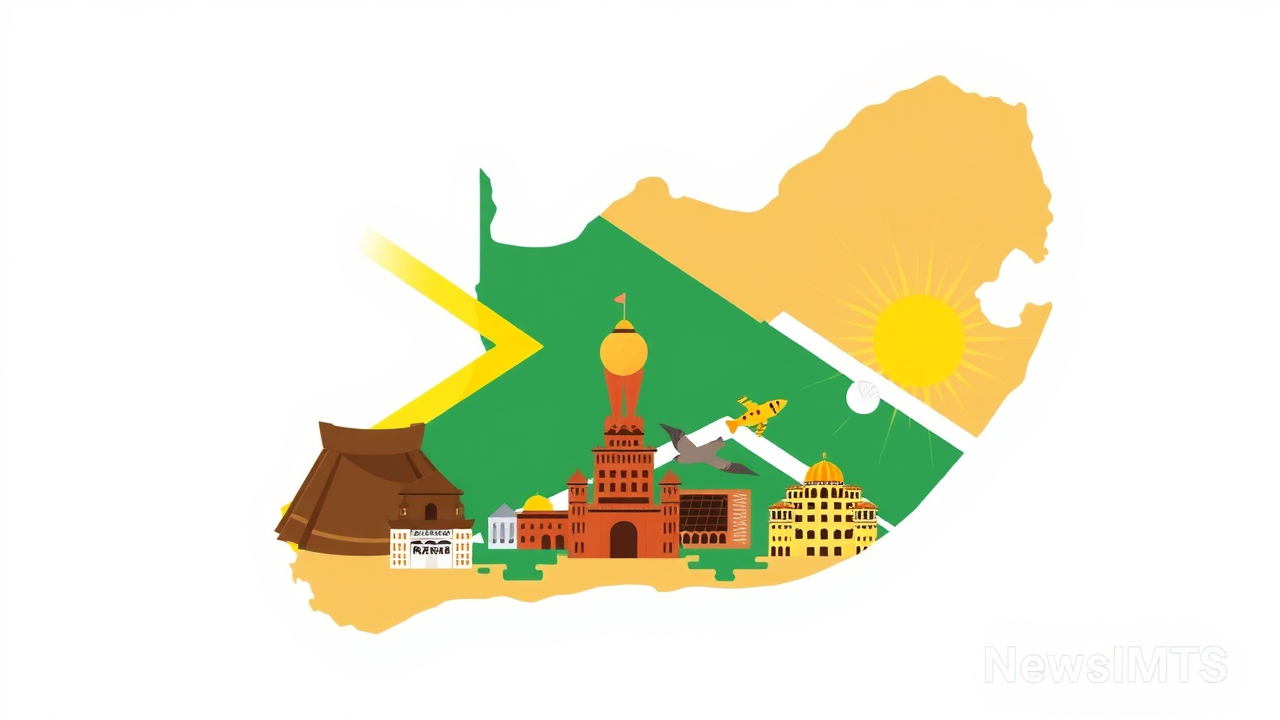 NewsIMTS
NewsIMTSSouth Africa is the only country in the world with three distinct capital cities. The unique system was established in 1910 during the formation of the Union of South Africa to balance regional influence. Pretoria serves as the administrative capital housing the President's office and Cabinet in Gauteng Province. Cape Town functions as the legislative capital where Parliament meets in Western Cape Province. Bloemfontein acts as the judicial capital with the Supreme Court of Appeal in Free State Province. This arrangement reflects South Africa's diversity with 12 official languages and multiple cultures. The three-capital system prevents any single region from dominating and aligns with the three branches of government: executive, legislative, and judicial. While Johannesburg is the largest city and economic hub following the 1886 gold discovery, it is not a capital. Today, this tripartite system continues to promote national unity across South Africa's diverse regions. (Updated 30 Oct 2025, 16:14 IST; source: link)
Why South Africa Has Three Capital Cities
South Africa stands unique as the only country with three official capitals, a system created in 1910 when the Union of South Africa formed. This arrangement was designed to balance power between different regions that were previously separate colonies. Pretoria serves as the administrative capital, housing the President's office and government departments. Cape Town functions as the legislative capital, where Parliament meets and laws are made. Bloemfontein acts as the judicial capital, home to the Supreme Court of Appeal. This unusual setup prevents any single region from having too much influence and reflects South Africa's commitment to sharing power across its diverse geography.
How the Three Capitals Work Together
Each South African capital city handles a different branch of government, creating a balanced system of governance. Pretoria in Gauteng Province manages day-to-day administration through government departments and ministries. Cape Town in Western Cape Province hosts parliamentary sessions where elected representatives debate and pass laws. Bloemfontein in Free State Province focuses on judicial matters with its Supreme Court of Appeal. This arrangement requires government officials to travel between cities for different functions, which some critics consider inefficient. However, supporters argue it promotes national unity by distributing government presence across the country's diverse regions, helping represent South Africa's multicultural society with its 12 official languages.
Key Points
- The unique system was established in 1910 during the formation of the Union of South Africa to balance regional influence.
- Pretoria serves as the administrative capital housing the President's office and Cabinet in Gauteng Province.
- This arrangement reflects South Africa's diversity with 12 official languages and multiple cultures.
